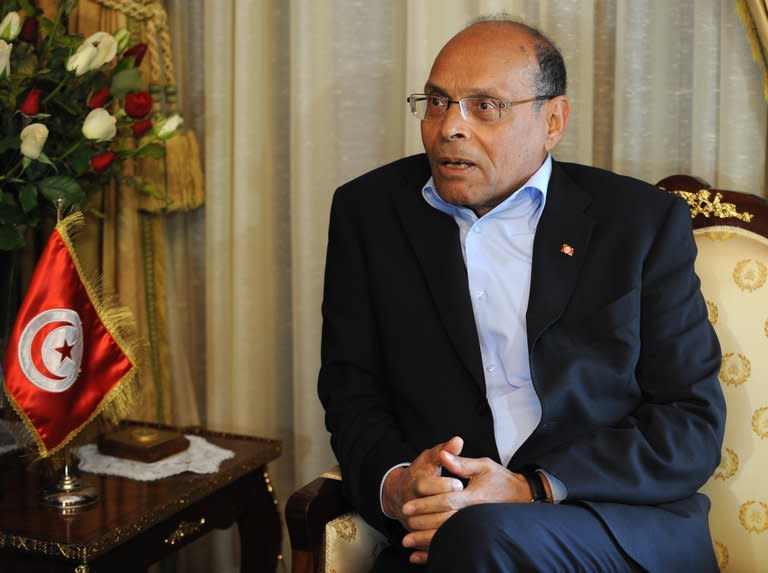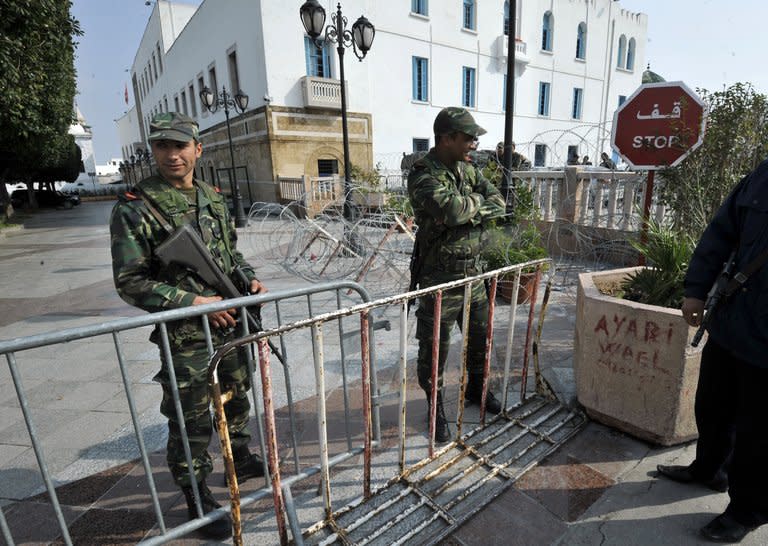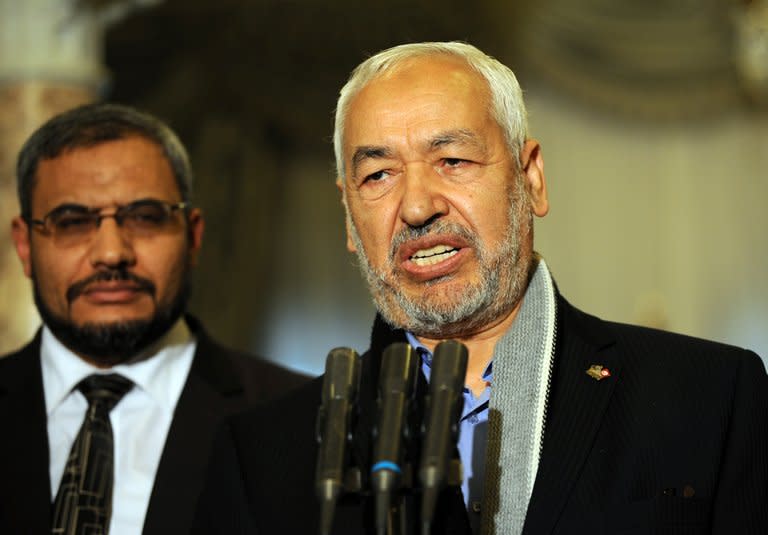Tunisia in political limbo as no new PM in sight
Tunisia was in political limbo on Wednesday as President Moncef Marzouki suffered setbacks in his bid to replace Prime Minister Hamadi Jebali, who quit after failing in his plan to form a non-partisan cabinet. Talks between Marzouki and Rached Ghannouchi, head of Islamist Ennahda party, ended inconclusively, dashing hopes of a soon end to Tunisia's deepest political crisis since the revolt that ousted Zine El Abidine Ben Ali two years ago. "For the moment we have no name," said Ghannouchi, whose party holds the majority in the National Constituent Assembly, after his meeting with Marzouki. He added that he was in "talks with Jebali" to continue in his post. Jebali announced his resignation late on Tuesday, saying he had failed in his efforts for a solution to the long-running crisis. He stressed when he resigned he would not sign on again as prime minister under "any initiative that does not fix a date for new elections. What about the constitution? What about elections?" As well as the row over the new government, there is deadlock over the drafting of a constitution, with parliament divided over the nature of Tunisia's future political system 15 months after it was elected. Ghannouchi after Wednesday's talks with Marzouki said "numerous parties have expressed their desire to be part of" a new government. "I hope that forming of the government will not go beyond this week," he added. Adnene Mancer, spokesman for the presidency, said it was hoped that a candidate for the premiership would be known by Thursday. "The issue is in the hands of the party that has the majority in the National Constituent Assembly. Ennahda has not yet decided on its candidate," he said. Tunisia was plunged into the crisis when leftist politician Chokri Belaid was shot dead outside his home in Tunis on February 6. Though no one claimed responsibility, Belaid's family accused Ennahda of being behind the killing, which the party vehemently denied. The assassination did little to ease the misgivings of liberals and secularists who believe Ennahda is failing to rein in religious extremists threatening the stability of Tunisia. Belaid's murder also sparked deadly street protests as well as strikes, which Jebali attempted to defuse by announcing plans for a non-partisan cabinet of technocrats to lead Tunisia into early elections. The proposal quickly foundered and Jebali received a final rebuff by his own Ennahda party on Monday, prompting him to carry out his threat the next day to resign if he failed to win sufficient support. Names being mentioned for the prime minister's post are Health Minister Abdelatif Mekki and Justice Minister Noureddine Bhiri, both from Ennahda. Marzouki was pursuing his efforts, with a meeting scheduled later Wednesday with Maya Jribi from the opposition Republican party, which has in recent days made it clear it is ready to support a cabinet comprising a mix of politicians and technocrats. Ahmed Nejib Chebbi, a prominent figure in the Republican party, expressed support for Jebali on Wednesday. "We support him because he has gained credibility," he said. Samir Bettaieb, leader of Al-Massar party, said he had "confidence in Hamadi Jebali due to the role he played after Chokri Belaid's assassination." A section of the Tunisia media also showered praise on Jebali. Le Temps said Jebali "has given everyone a wonderful lesson in courage, consistency and commitment for the best interests of the nation". Jebali's plans had been bitterly opposed by Ennahda hardliners, represented by Ghannouchi, who refused to give up key portfolios and insist on Ennahda's electoral legitimacy. The Islamists control the interior and foreign portfolios, and dominate the national assembly. The political deadlock has left the country paralysed. Since the revolution, Tunisia has also been rocked by violence blamed on radical Salafists, and ongoing social unrest over the government's failure to improve poor living conditions.




